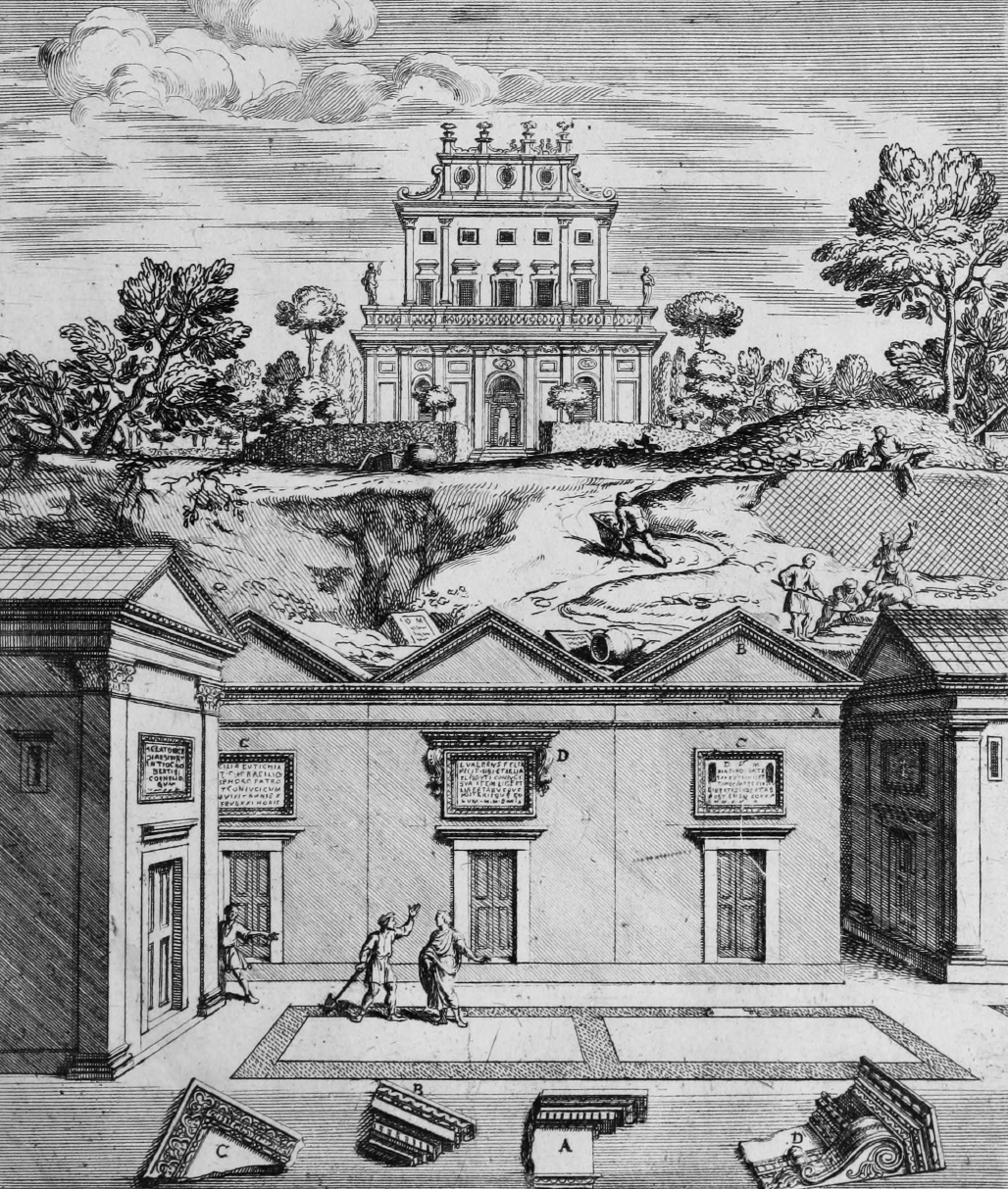Tomb Plundering in Ancient Greece and Rome
12.05 H09:30-19:00
13.05 H09:30-18:30
Entrance: Via Liguria 20
12.05 H09:30-19:00
13.05 H09:30-18:30
Entrance: Via Liguria 20
The event will be held in English and Italian and will take place at Istituto Svizzero, via Liguria 20, Rome.
Click to participate on the 12.05.2022 here.
Click to participate on the 13.05.2022 here.
Tomb Plundering in Ancient Greece and Rome
The conference is dedicated to the subject of grave looting and robbing in the Graeco-Roman World. Bringing together archaeological, epigraphic, literary, and legal evidence, this conference will be the first time that the phenomenon of ancient tomb plundering, and its many historical contexts, will be discussed from a perspective of longue durée (from the Bronze Age to the Early Middle Ages, 2500 BC – AD 800). To this end, experts in various disciplines (ancient history, classical archaeology, classical philology, legal history, and related disciplines) will shed new light on the wide variety of potential motivations behind this habit (ranging from economic to ideological to cultural factors) and the possible actors responsible for the plundering of tombs in very different time periods.
The aim of the conference is to clarify whether such transgressions occur more frequently in times of major socio-political instability. Furthermore, the conference aims to ensure that the phenomenon of tomb plundering is given greater attention in future classical studies and related disciplines.
With the support of Swiss National Science Foundation (SNSF), organized by Cristina Murer (University of Bern).
Programme:
Thursday, 12.05.2022
Session I: Tomb Plundering in Ancient Greece
Chair: Ginny Wheeler (University of Bern)
H09:30 – Welcome and introduction
Maria Böhmer (Istituto Svizzero), Cristina Murer (University of Bern)
H10:00 – Yannis Galanakis (University of Cambridge), Use and Looting in Mycenaean Tombs
H10:45 – Coffee break
H11:15 – Caterina Parigi (University of Cologne), Distruzione, saccheggio e riuso nelle necropoli ateniesi in età ellenistica e romana
H12:00 – Nikolas Dimakis (National and Kapodistrian University of Athens), Traces of Tomb Looting in Ancient Greece from the Classical Period to Late Antiquity
H13:00 – Break
Session II: Epigraphic and Legal Evidence
Chair: Nicolas Laubry (École Française de Rome)
H14:30 – Kaja Harter Uibopuu (University of Hamburg), The Epigraphic Evidence for Tymborychia in Greco-Roman Asia Minor
H15:15 – Franco Luciani (University of Urbino Carlo Bo), Roman Funerary Fines: The Case of Iulia Concordia
H16:00 – Coffee break
H16:30 – Jörg Domisch (University of Freiburg), Actio sepulchri violati (D. 47,12) and its Legal Context
H17:15 – Paola O. Cuneo (University of Milano-Bicocca), La violazione dei sepolcri nella legislazione tardoimperiale
H18:30 – Keynote Lecture I
Éric Rebillard (Cornell University), Tomb Violation and a New ‘Body World’ in Late Antiquity
Friday, 13.05.2022
Session III: Tomb Plundering in Ancient Rome
Chair: Ilaria Gullo (Istituto Svizzero)
H09:30 – Liana Brent (Kenyon College), Grave Robbing in the Vagnari Cemetery
H10:15 – Lucrezia Spera (Università degli Studi di Roma Tor Vergata), Sul tema dell’inviolabilità dei sepolcri nella Roma tardoantica: dati epigrafici e archeologici
H11:00 – Coffee break
H11:30 – Daniela Rossi, Federica Chiocci, Rossella Zaccagnini (Archeologia Belle Arti e Paesaggio di Roma & area metropolitana di Roma), Spoliazione e decostruzione delle tombe monumentali sulla via Flaminia: il caso del mausoleo di M. Nonio Macrino
H12:15 – Peter Henrich (Rheinisches Landesmuseum Trier), Destruction and Reuse of the Roman Funerary Monuments in Northern Gallia Belgica
H13:00 – Break
Session IV: Tomb Plundering beyond Ancient Greece and Rome
Chair: Cristina Murer (University of Bern)
H14:30 – Valentina Gasperini (University of Bologna/Institut français d’archéologie orientale du Caire), Ancient Egyptian Tomb Robberies: The Gurob Burnt Groups Case
H15:15 – Alison Klevnäs (Stockholm University), Reopening Graves in the Early Middle Ages
H16:00 – Coffee break
H16:30 – Summary and final discussion
Stefan Rebenich, Cristina Murer (University of Bern)
Engraving of the fully preserved tombs from the via Aurelia unveiled in 1663 at the villa Corsini (today Villa Doria Pamphili) by Bartoli (1680) pl. 4 (after Wikimedia Commons)
